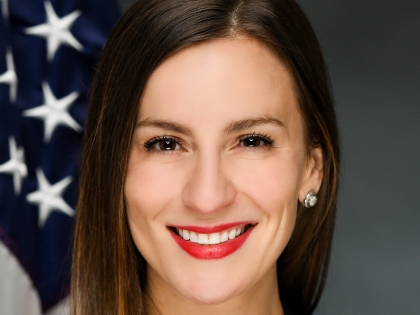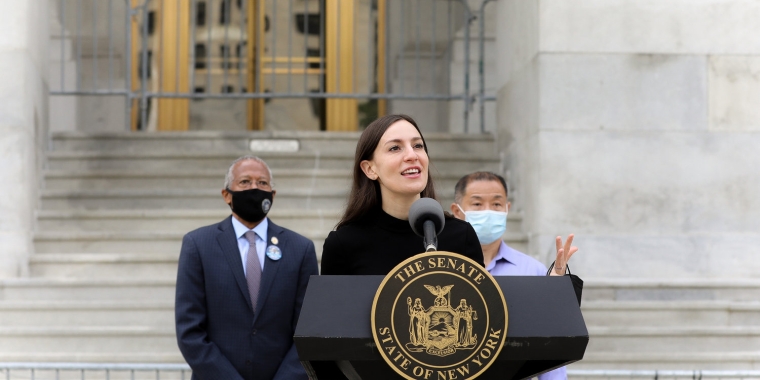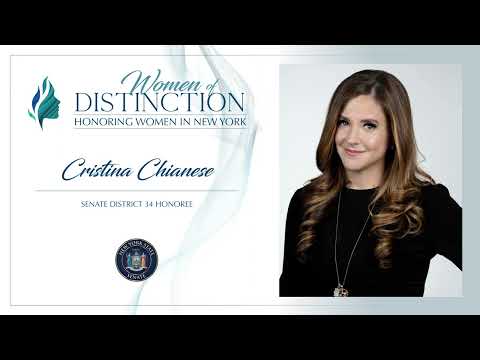
Long road to transform elections in New York

Last week, Brooklyn borough president Eric Adams officially received the Democratic nomination for mayor after the city elections board certified results from the June primary.
With counting now wrapped up in most races across the city, it may be easy to forget that just a few weeks ago, the city elections board made a very public snafu that some said undermined confidence in the new ranked-choice voting system.
That mistake initially added 135,000 test ballots in the early counting process, mixed in with actual votes. The error was caught quickly, but not before the damage had been done. The elections board released a corrected tally just a couple days later that didn’t vary much from the first batch. But in the era of Donald Trump’s “big lie,” the confidence erosion was nearly impossible to avoid.
Observers, however, shouldn’t blame counting issues on ranked-choice voting, says state Sen. Alessandra Biaggi.
“Ranked-choice voting is not the reason why this election was messy, it’s just not,” she said. “And I think that a lot of people really tried to blame ranked-choice voting as the reason why the (elections board) was having a hard time. It’s just not true.”
Instead, the blame lies with the board itself, Biaggi said. That’s why she and other critics quickly took to social media to point out other errors over time that could almost easily undermine confidence in an election. That included another recent incident where the elections board mailed hundreds of thousands of incorrect ballots to people in Brooklyn during the 2020 primary race.
After watching the latest chaos with the city’s elections board unfold, Biaggi took to her fundraising network to propose a path to reform: Amending New York’s constitution to change the makeup of elections boards around the state. She called voting reformers to sign onto supporting such a measure.
“The truth is that the BOE is largely staffed by friends and family members of elected officials and political heavy hitters who are appointed for no other reason than cronyism,” Biaggi wrote in a fundraising email. “If you agree that we must reform the BOE, please add your name here to support an amendment to the New York constitution creating transparent elections for BOE positions.”
Biaggi refers to the fact that in New York, the Democratic and Republican parties in each county are responsible for choosing the commissioners who sit on their respective elections boards. There are 10 commissioners in total on the city board — one Democrat and one Republican from each borough.
Giving this power to the political parties, Biaggi said, allows them to appoint friends and family as political favors instead of choosing qualified elections experts.
For instance, the New York Post recently reported that state Sen. Jamaal Bailey’s father — Stanley — holds an analyst position on the Manhattan elections board, which he was appointed to when the senator worked as a staffer in Assembly Speaker Carl Heastie’s office in 2012. Additionally, the report said, Heastie’s sister was hired as a poll worker — helping to run elections between 2014 and 2018.
“We’ve seen that people in the city (elections board) are hired because of nepotism,” says one elections observer, Sue Dodell. “You know, they’re related to a party (member). Or they’re related to a commissioner.”
Dodell, a member of the Northwest Bronx Indivisible steering committee, said New York’s elections boards are configured this way because the state constitution mandates the two parties that get the most votes in recent elections choose an equal number of state and local board commissioners.
The staff jobs are also appointed by the two major political parties. Having a Democrat and Republican for each position on the boards also leads to many administrative issues, Biaggi said.
“They’re not professionals, right?” she said. “They’re not, like, individuals with this expert knowledge on elections. And so the result becomes the BOE being staffed by many of these political party bosses’ friends and family members. Just at the end of the day, there’s nothing that they’re essentially able to contribute, other than the creation of cronyism.
“And so that’s a really very big problem because we’re trying to undo this kind of politics.”
Biaggi is still working on the specifics of her constitutional amendment, but its main goal will be to completely restructure elections boards at both the state and county level. Essentially Biaggi wants to “professionalize” elections boards, she said, by getting rid of the constitutional requirements that the two major political parties must appoint board members, and must be equally represented on every board.
Another way to professionalize elections boards is to make staffers into civil servants who must take an exam before working for the board — something Biaggi says is common in most city and state government agencies.
“Right now, the goal of any amendment would simply just be to create this nonpartisan election system,” she said, “where the BOE is just not beholden to political parties or political bosses.”
There’s a couple of different ways to make this a reality, Biaggi said. They could replace the state elections board with an elected secretary of state who would be responsible for administering elections — a model several other states already use. Another option is having a separate appointed chief election official, or board of elections commissioners made up of non-partisan civil servants.
Dodell believes the best path forward is to have either an elected or appointed secretary of state with an agency head — appointed by the mayor — to oversee city elections.
“I think that there are a lot of people out there in our country with expertise in election administration,” Dodell said. “And we should be hiring people who know how to run elections, rather than just based on political patronage.”
Passing a state constitutional amendment, however, is by no means an easy process. The proposed amendment must pass both chambers of the state legislature in two consecutive sessions, and then must be approved by voters through a statewide referendum.
It’s a process that can take at least two years.
Jarret Berg — co-founder of voting rights group Vote Early NY — says that while a constitutional amendment is important, there are other more immediate routes the legislature can take to reform elections. For instance, Queens state Sen. Leroy Comrie introduced a bill requiring elections board commissioners and staff members to get their skills certified.
“That would at least professionalize the boards — those roles,” Berg said. “Provide a common core of training for how to run an election.”
But Biaggi says she’s committed to passing the constitutional amendment, even though it will take a lot of time and effort.
“I mean, it’s not so big that we can’t do it,” Biaggi said. “But it’s just important to note that this is an undertaking.”
